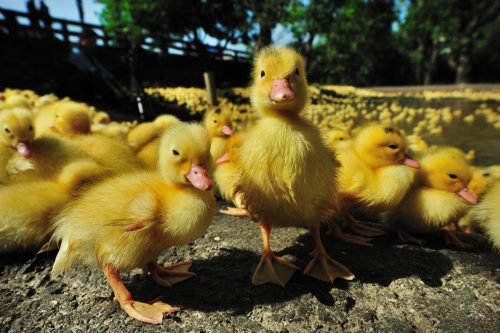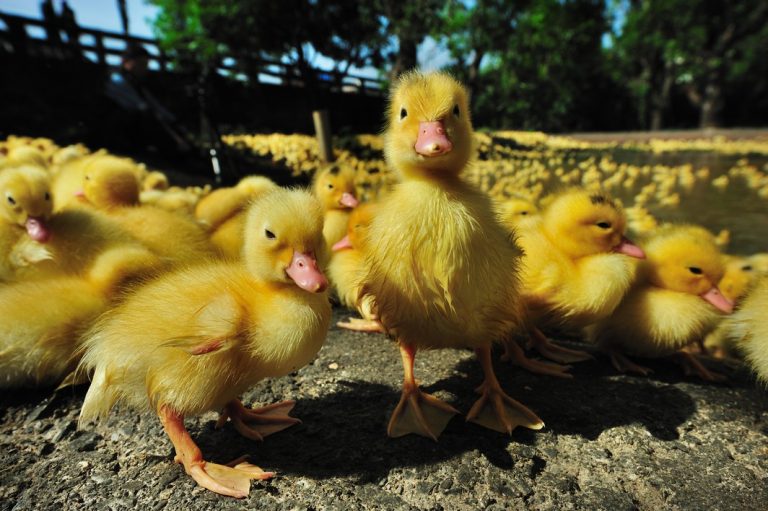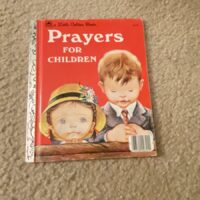Most children ask questions about body parts and where babies come from as early as two years old. It’s your job as parent to answer those questions and then spend the next eighteen years educating and sharing more information with your kids about their body and sexuality.

When to Talk About the Birds and the Bees – A 5 Step Approach
Follow these five steps to prepare yourself to communicate about sex with your children effectively.
Step 1 – Make Your Decisions Beforehand
Talking about the birds and the bees should start before your baby is born. No, I don’t mean talking to your belly about what’s about to happen and their extreme real-life lesson on what happens when a couple mates. I’m talking about discussing how you want to handle the sex talk with your future children.
For example, do you and your spouse agree to let the school teach your children about sex ed? Some are okay with teaching homosexuality in a positive light, whereas others prefer to focus on a more Biblical teaching on this topic.
Yet again, some parents prefer to teach sex before marriage is against God’s wishes. Others focus more on waiting for sex until you love someone or are ready to be a parent.
Abortion is another topic to discuss with your spouse before you discuss it with your children. Do either of your support teenagers getting abortions? My family does not and has already discussed with our children that we will help them in any situation. They do not need to feel abortion is necessary or that we will harm them if they end up pregnant.
These are things you should discuss before you talk to your child. Many couples disagree about many of these topics and it warrants a conversation before an argument ensues in front of your child and sends mixed signals.
Step 2 – Be Careful What Your Children Hear
Kids may not have years of wisdom like us adults, but they are masters of listening to their parents communicating. They listen to conversations between adults, both on and off screen, and infer a ton of information.
Do not be surprised when your children perceive more than you expect. Just because they do not have a lot of information does not mean their little brains aren’t cranking away on the info they picked up along the way.
Pay attention to what your kids are listening to. Music, video games, movies, cartoons, their immature uncle Luke, their classmates, etc… all unknowingly and knowingly say things kids pick up on, and it may not be the information you want tucked inside your precious child’s brain.
Make sure you are aware of what your child hears and what your child perceives from the information they come across.
For example, I watched the new Beauty and the Beast movie with my girls and there was a scene where two guys made eye contact with inferred flirting. I asked the girls if they understood that scene and only one did. Make sure you are aware of their level of consciousness.
Step 3 – Choose The Right Time to Talk About Certain Topics
As with most concepts, the birds and the bees talk should happen in stages as your child becomes ready for new information.
Here is a helpful guide for discussing the sexual organs and sex with each age.
0-4 Years – Name That Body Part
The most important aspect of sexual matters to speak about at this age is the difference between boys and girls and private parts. Both boys and girls should possess a general understanding of where to locate body parts. Many parents use different names for private parts.
I’m on board as kids repeat new words they love a lot, loudly, and in public. No one wants their kid screaming, I have a vagina through Walmart when I have a who-ha, sounds a lot less aggressive and is less likely to cause an uproar with other parents.
Make sure they recognize the real word, but let them know that you prefer to use a nickname for the parts.
The most important concept at this age is to give enough information to satisfy curiosity without overloading children with unnecessary information for their age. Answer questions in general terms.
For Example:
Mommy, that lady’s belly is fat.
Her belly is big because she has a baby growing in her belly.
How did the baby get in there?
When a mommy and daddy get together, they can make a baby if they want to.
Simple answers like these satisfy most kids at this age. If this isn’t enough information, you can either tell them they can have a more specific answer when they are older or try to answer with more specific, yet simple information.
Avoid saying adults create babies with a special hug. Children have active imaginations and will fear hugging someone because they believe it will put a baby in their belly and they don’t want to get fat. Their logic, not mine.
Finally, at this age, tell your child about who can and cannot touch their private parts. The younger the better. They only know what we teach and what we infer. Tell them only mom, daddy, and a doctor can touch you down there, and if someone else touches them down there to tell you. Children are tattletales at a young age and in this instance, it’s a good quality to encourage.
5-7 Years – Time for Specifics
This age needs more in-depth answers. Early age school kids don’t want the answer daddy put a baby in mom’s belly. They want to understand how daddy put a baby in mom’s belly. It’s your job to try not to be embarrassed and give a simple, yet detailed answer.
Books help to show what’s going on. Most kids don’t want more information once they find out where the penis goes. They need a few years to stew over the answers. All of this information, while necessary, is super gross to children.
The best way to handle questions is by answering naturally. When they ask, you answer. When something on television comes up, explain it and move on. Do not dwell on the topics, but make sure your child is aware you can and will answer any question they have without trauma.
Keeping the lines of communication open from the beginning is key, as next comes puberty, and then horny teenagers with no business having sex. And you thought toddlers were tough.
Lastly, this is when kids begin to gossip. They tell each other everything they convinced themselves they learned about kissing and sex so they can be the big shot in class. I don’t know this from experience Make sure your children come to you for answers, as some of their friends think they can get pregnant by kissing or that hugging is a form of sex.
8-12 Years – Intro to Puberty 101
Girls
Expect your child to be uncomfortable in the preteen years when talking about all things related to their body and sex. Tell them you are uncomfortable too, but it’s an important topic and not as embarrassing as their friends make it out to be. Fact is, they need this information before their friends continue to feed them ridiculously untrue facts.
Now is the time to talk about puberty, before it happens, so girls aren’t taken by surprise. Sit down with your girl for this talk, get comfortable and explain all aspects and answer questions.
Single dads, I beg you to find a trusted woman, like an aunt or grandma, to talk to your daughter while also explaining that you can answer most of her questions! It makes it so much easier!
Remember to include all the details such as breasts, her body shape changing, pads, tampons, etc. Moms, let her know that you’ve been there. If you need extra help, here is a book to help you out.
Boys
For boys, it’s time for dad to sit down and explain all of those fun guy experiences like wet dreams, ejaculation, erections, voice cracking, and an insatiable desire to jump up and touch the top of every door frame.
Again, if dad isn’t available, moms should find a trusted guy to have this talk, but leave the lines of communication open.
All Pre-Teens – Abstinence and STDs
This pre-teen stage is also the time to talk about abstinence. Some twelve-year-olds become sexually active looking for love, friendship, and attention in all the wrong places. Explain that sex is the number one way to get pregnant and no one should have sex before they can support a baby. Set goals like get a driver’s license, graduate middle and high school, college, get a job, a place to live, etc. before losing virginity.
Also, mention the other ramifications of sex, such as STDs. Most kids become sexually active early for cool points with their friends. Tell them those same friends who pressure them to do things they aren’t ready for won’t hang around when a baby enters the picture and ruins all their fun. Babies are great for those ready for parenthood, not for those unprepared by a young age.
Talking now will encourage the communication line to remain open when they get into those teen years. Again, books can are a great resource to help children understand the changes in their body and what they should understand about sex.
13-18 Years – You’re Not Ready for Sex
Continue discussing abstinence with your teenager. Most teens lose their virginity at fifteen years old. I never fell for the not my kid mentality. Your kid has been replaced with a walking hormone. A cute one, I’m sure, but a hormone all the same.
Be available for questions and continue to monitor their media for inappropriate lessons on sensitive topics. Many kids want more information about oral sex, transgender, bi-sexual, and all the other genders this new generation has created.
Many teens still don’t know what constitutes sex. Some teens may conclude only penetration counts as actual sex, which is essentially true, but other acts lead to more acts. Also, other acts can still lead to STDs, another important topic to discuss at length at this age.
Finally, as walking hormones, teens fail to consider the long term emotional consequences of sex. Please explain that hormones are in control for the first six months of a relationship. Also, discuss how when you sleep with someone, you give them a piece of your heart, one you can never get back, so keep your heart with you!
Step 4 – The Most Important Aspect
Keep the lines of communication open! I am aware I said this several times throughout this article. It’s just so important to express your willingness to speak to your children about the birds and the bees.
Embarrassment is natural for both sides, but work through the awkwardness. I use humor with my kids, it works like a charm. My daughter recently asked me what a BJ was. I explained it, and while my face was a little red, someone needed to answer her question and I don’t want her googling the topic!
Step 5 – Model Healthy Sexual Relationships
Our most important jobs as parents is to model what we want our children to follow. The same is true about a healthy, happy sex life. The decisions you make and model become the norm and accepted by your children. Choose wisely.
If you are loving and affectionate with your spouse, chances are strong your children will follow suit. The same goes for a parent who models sleeping around with multiple partners and never staying in a committed relationship.
Everything you do is a demonstration of the behavior your children assume you approve of. When your child is young is the best time to decide what you want to model.
Final Thoughts
With these five steps, you can go forth and communicate effectively with your children.
You are your child’s first and best source of information about the birds and the bees, both kinds. Make sure you prepare yourself. Read articles like this one, read books, know the terminology and the location of all the body parts. Your tone and what you display set the tone and the model for your children.






